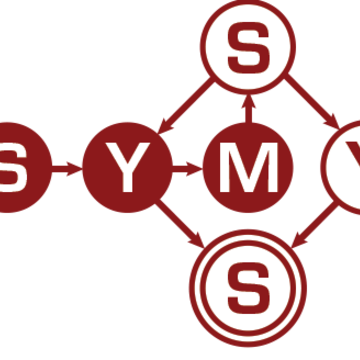SSP Forum: Alvin Tan and Dean Manko (M.S. Candidates)

The
Symbolic Systems Forum
presents
Translation equivalents and bilingual word learning
Alvin Tan (M.S. Candidate)
Symbolic Systems Program
and
Look Who's Talking: Examining the role of racialized beliefs in language processing and speaker judgments
Dean Manko (M.S. Candidate)
Symbolic Systems Program
Monday, May 9, 2022
12:15-1:15 pm
Margaret Jacks Hall (Bldg. 460), Room 126
NOTE: Due to Covid-19 restrictions on building occupancy, only current Stanford students, faculty, and staff may attend this event live
ABSTRACTS:
(1) Translation equivalents and bilingual word learning, Alvin Tan (M.S. Candidate)
Symbolic Systems Program (Primary Advisor: Mike Frank, Psychology; Second Reader: Virginia A. Marchman, Psychology)
Bilingual environments present an interesting context for language learning, notably due to the existence of translation equivalents (TEs)—words in different languages that share very similar meanings. Understanding how these TEs are learnt may give us insight into mechanisms underlying word learning in young children. We investigated this by conducting a systematic literature review and meta-analysis of TEs in children’s vocabularies, finding significant variability with age as a moderator. We then conducted a corpus analysis of parent-report vocabulary data of bilingual children, finding that TEs confer an advantage for younger children, and with less frequent words. These results suggest that TEs provide an alternative pathway to word learning, allowing bilingual children to bootstrap their word learning in one language using their knowledge of the other language.
(2) Look Who's Talking: Examining the role of racialized beliefs in language processing and speaker judgments, Dean Manko (M.S. Candidate), Symbolic Systems Program (Primary Advisor: Judith Degen, Linguistics; Second Reader: Katherine Hilton, Linguistics)
We heavily depend on information about who is talking, as well as our prior beliefs about the world, to construct meaning: consider how being asked “what are you doing?” communicates an entirely different idea if the asker is a friend versus a police officer. However, there exists little empirical research on the role of preconceived notions and stereotypes in how we process an utterance and judge its speaker. In a series of experiments, I examine the notion of how racialized ideologies and stereotypes play a(n implicit) role in language processing and judgment. From these empirical studies, I examine which experimental contexts manage to elicit these attitudes as well as discussing how my findings present the role of race and gender in how we perceive and judge conversational actions. Additionally, I discuss the broader implications of interruptive speech being judged differently based on the race — and gender — of the speaker.
A NOTE ON THE RECORDING OF EVENTS:
If a decision has been made in advance to record an event and to make it available for later public viewing, the event announcement will usually state this. In many cases, however, decisions to record, and/or to make a recording available publicly, are not finalized before an event is announced. Availability decisions for recordings are often subject to what speakers prefer after an event has concluded, among other considerations that may include usage rights for material used in an event, as well as the need for, and practicality of, editing. When recordings are made publicly available, they will be linked within the original event announcement on the Symsys website in the days or weeks following an event. Unfortunately, we cannot follow up on individual requests for more information about whether and when a recording may become available if it is not yet posted publicly.